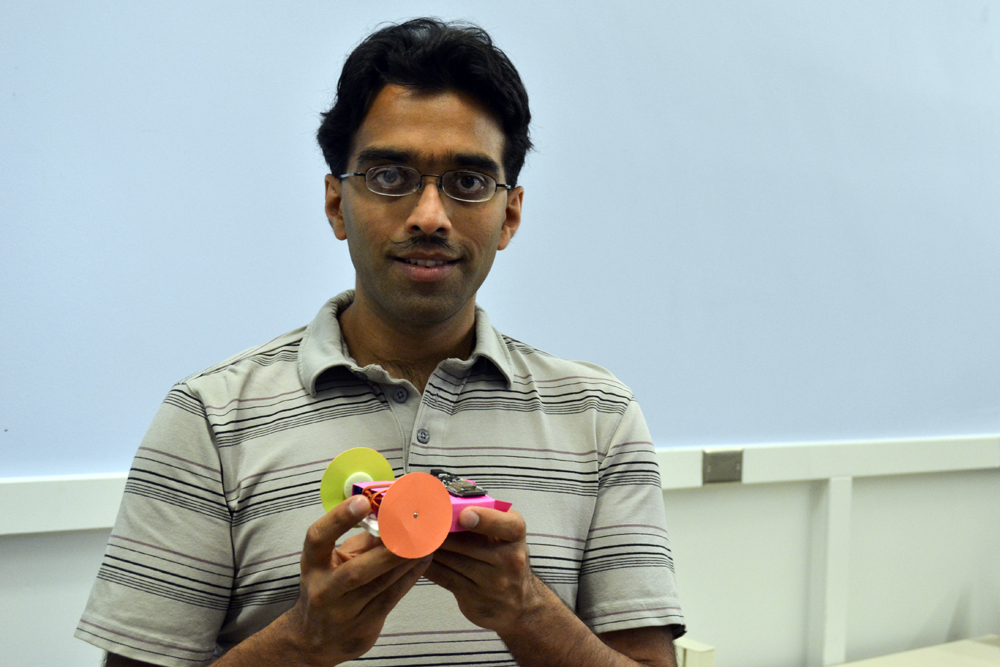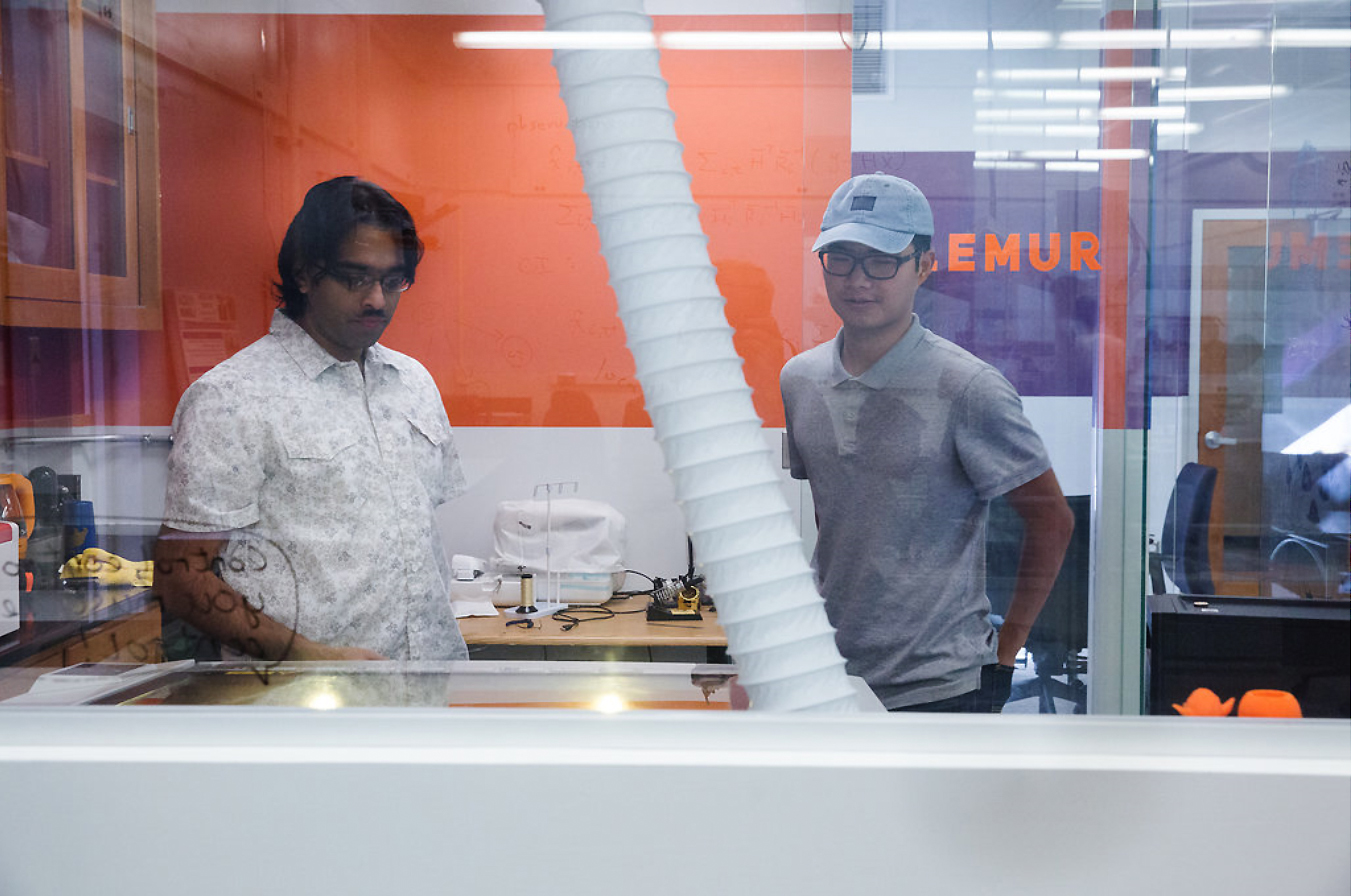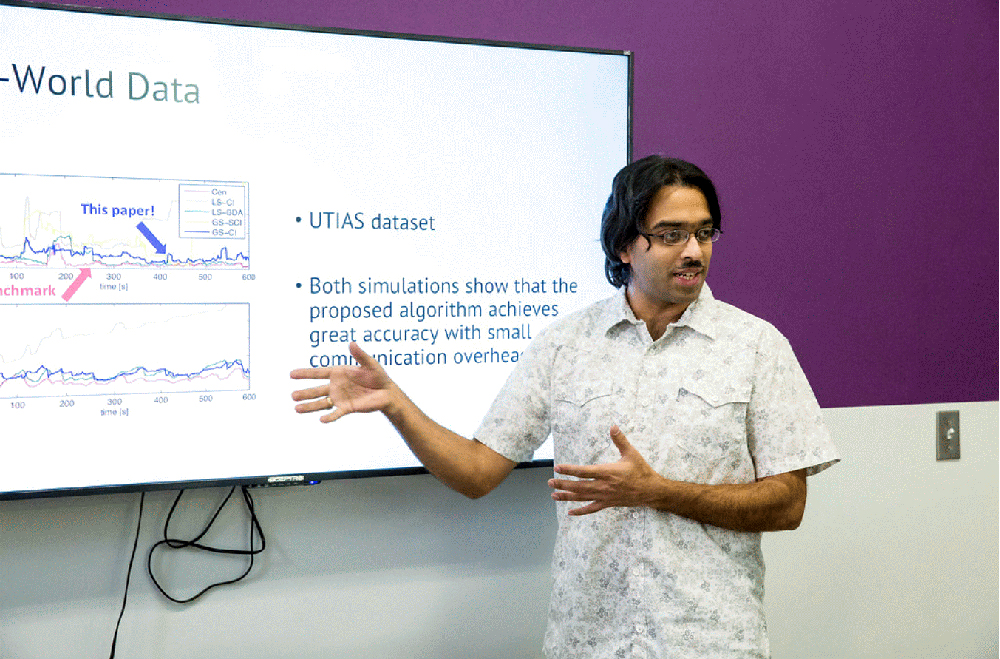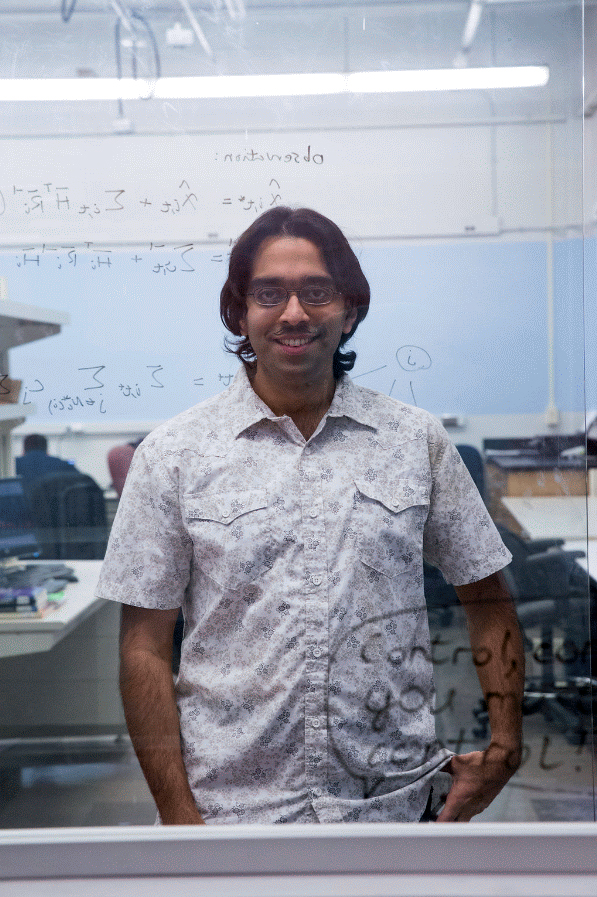Prof. Ankur Mehta recently received a National Science Foundation Career Award.

Prof. Ankur Mehta of the Electrical and Computer Engineering Department recently received a National Science Foundation Career Award, in January 2018, for his proposal entitled: “Robots for Everyone, Everywhere.”
The everyday world is pervaded by computational devices laptops, smart phones, and many other personal and household electronic devices make it increasingly easier to find solutions to any computational problem one may have. However when it comes to physical problems in the real world, personal technology lags far behind: typical users often have minimal to no interaction with robots in daily life. The research in this project aims to address unmet needs, creating the technology necessary to make robotics as ubiquitous as computing is today; by democratizing access to robot creation reducing barriers to entry we can advance technology in developing fields, bring opportunities for technical advancement to under-served communities, and excite and encourage students to further their education throughout the country and the world. The project will result in creation of user-friendly tools that allow anyone with any background or expertise to design custom, personalized robots. The research will include development of new fabrication processes that enable the on-demand fabrication of the designed robots. Also, new algorithms and frameworks will be investigated for expanding autonomous control of distributed networks of these devices. The goal of the project is for everyone to eventually be able to say, for any personal physical task that needs to be solved, “there’s a robot for that.”
The proposed research plan will address theory and systems issues under the three parallel thrusts of design, fabrication, and control for pervasive personal robots. Ubiquitous cyber-physical systems must deliver uniquely specified functionality, and so this program will investigate design automation algorithms that generate manufacturable specifications from high-level task descriptions provided by inexpert users, feeding back verification and validation results into user-in-the-loop and automated optimization. These designs must then be realized into integrated electromechanical machines at a personal scale, for which this research will explore rapid manufacturing tools and processes that use robust mechanical materials and integrated electromechanical metamaterials for subtractive manufacturing and develop discrete microfabricated active elements for additive manufacturing. Finally, these robots must be controlled; this program will investigate universal communications and control subtasks at an integrated system level, using the intended ubiquity of personal robots to develop algorithms and protocols for distributed localization, communication-aware motion planning, and mobility-enhanced networking.
link: https://nsf.gov/awardsearch/showAward?AWD_ID=1752575




